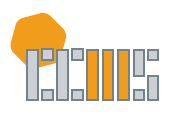Abstract / Synopsis
In this paper, we argue that making activities within non-formal learning environments (e.g., museums, libraries) provide opportunities to engage youth in what we define as mathematical practices for making, everyday mathematical practices within the context of making activities. The mathematical practices identified from two non-formal school-based contexts highlighted three mathematical practices for making: informal measurement, spatial reasoning, and curiosity. These practices are identified in prior scholarship as being beneficial and foundational for the understanding of mathematical concepts. As educators and researchers turn to non-formal and informal contexts, with an eye toward understanding ways youth engage in the activity of making, descriptions of mathematical practices for making build upon prior everyday mathematical practices and open up a new landscape of inquiry.
DOI
10.5642/jhummath.202201.05
Recommended Citation
Amber Simpson & Signe Kastberg, "Makers Do Math! Legitimizing Informal Mathematical Practices Within Making Contexts," Journal of Humanistic Mathematics, Volume 12 Issue 1 (January 2022), pages 40-75. DOI: 10.5642/jhummath.202201.05. Available at: https://scholarship.claremont.edu/jhm/vol12/iss1/5
Terms of Use & License Information

This work is licensed under a Creative Commons Attribution-Noncommercial-No Derivative Works 4.0 License.
